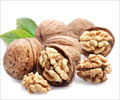Areca nut chewing, especially with tobacco additives, has a significant positive association with metabolic syndrome.

The effects of chewing betel nuts are mainly due to the nut’s active ingredient arecoline, an alkaloid which affects the central and autonomic nervous systems. However, it also causes palpitations and increases heart rate and blood pressure, causes stomach upsets and dizziness; and in the long run, it can cause mouth ulcers, peptic ulcers and increases risk of heart disease.
Earlier a Taiwanese case study reported a positive association of milk-alkali syndrome with betel nut chewing. Milk-alkali syndrome is a condition in which there are high levels of calcium (hypercalcemia) and a shift in the body's acid/base balance towards alkaline, termed as alkalosis. High levels of vitamin D can worsen this condition.
In another study published in the Journal of Nutrition, Health & Aging, authors Fawad Javed and colleagues from King Saud University, Riyadh, Saudi Arabia, associated areca nut chewing with metabolic syndrome, especially with two of its components - diabetes mellitus and abdominal obesity.
Metabolic syndrome is the name of group of risk factors – large waistline (abdominal obesity), high triglyceride levels, low HDL cholesterol levels, high blood pressure and high fasting sugar – that raises the risk of heart disease, diabetes and stroke.
The researchers at the Dow University of Health Sciences, Karachi, Pakistan studied 1070 individuals in Karachi through questionnaire, blood sampling and logistic regression analyses to investigate the relationship between areca nut chewing and metabolic syndrome.
• Areca nut chewers who were less than 40 years of age were 4.3 times more likely to have metabolic syndrome after adjusting for social class, compared to non-chewers.
• Metabolic syndrome was significantly higher among female areca nut chewers compared with their male counterparts.
• Areca nut chewers with tobacco additives had higher odds of metabolic syndrome compared with raw areca users.
• Areca nut chewing was associated with increased odds of central obesity (1.46 times among raw areca nut users and 2.02 times among areca users with tobacco additives), hypertension (odds ratio = 1.31 for raw areca users and 2.05 for additive users), high blood sugar levels and dyslipidemia (abnormalities in cholesterol and lipid levels) even after adjusting for age, gender and social class.
The researchers suggested that areca nut chewing can suppress hunger and this may induce a state of malnutrition leading to vitamin-D deficiency. Vitamin-D has been identified as risk factor for many systemic disease including metabolic syndrome and type-2 diabetes.
Another possible theory is that the alkaloid arecoline interferes with gamma-aminobutyric acid receptors and suppresses the appetite while increasing postprandial carbohydrate use, suggested the researchers.
People who chewed areca nut with tobacco additives were significantly more likely to have metabolic syndrome. 'It is reasonable to assume that tobacco content of these nuts may be mediating some additional metabolic changes leading to metabolic syndrome,' say the authors.
The researchers concluded that although 'a convincing association between areca nut chewing and metabolic syndrome may be present, a larger study may provide more precise estimate for this relationship'.
Source-Medindia
 MEDINDIA
MEDINDIA


 Email
Email










